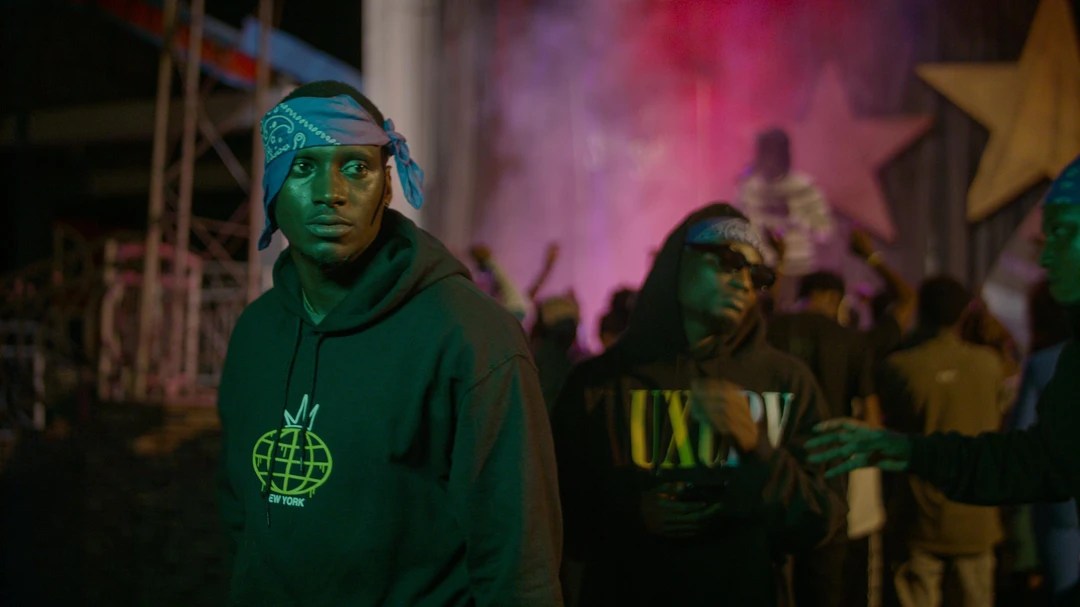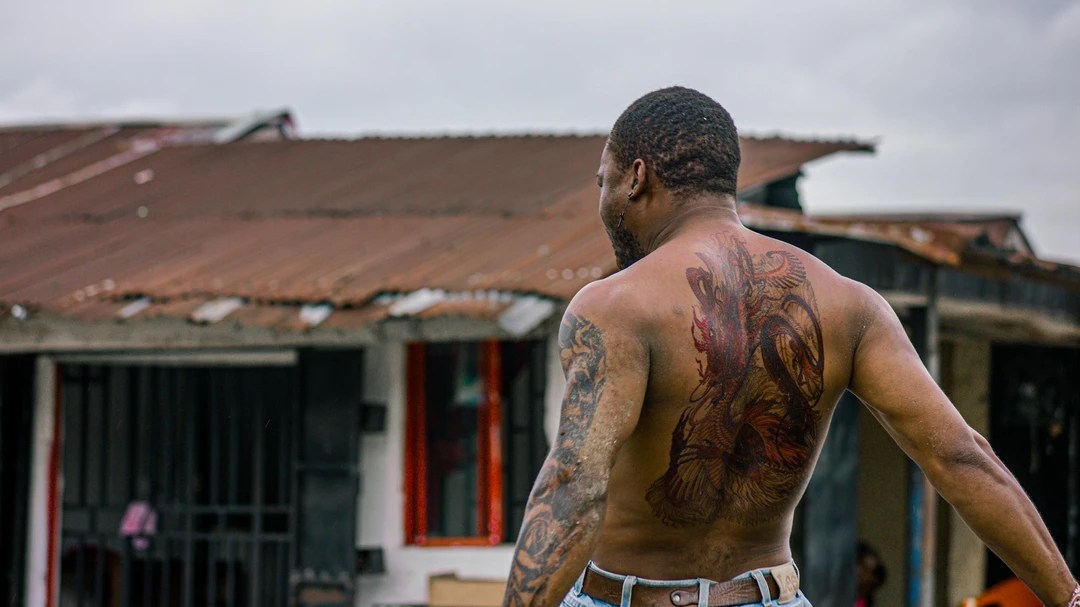When the trailer for Dara: A Port Harcourt Love Story dropped, one detail stood out: the question mark at the end of its title. It is a small punctuation mark, but also a challenge. Is this really a love story or is Nollywood testing the boundaries of what love on screen can mean?
Most Nollywood romances are shot and set in Lagos, following a familiar pattern: boy meets girl, a whirlwind of boutique shopping and candlelit dinners, then marriage or heartbreak. Dara rejects that template. It is firmly rooted in Port Harcourt, with a different kind of rawness, love that is messy, layered, and often toxic.
Love in Many Forms
Riyo David, who plays Chuks, describes the film’s central difference. “This is not a boy-meets-girl kind of love story. Love is a subliminal theme, but it cuts across everything: love for art, brotherhood, and even vices. It’s strange, but even cultism is driven by love and passion in Port Harcourt. The film shows love on so many layers, beyond just sensual tension.”
Raymond Umenze, another cast member, expands on this idea. “For me, it’s about the umbrella of love. Watching this film, you can experience different types of love depending on your own life. It could be protective love, like what you’d do for your mom or dad, even if it means stepping into something toxic. That’s why audiences will connect. Everyone will see a piece of themselves [in this movie].”
This layered approach stands in sharp contrast to the “spree spree spree” love stories common in Lagos films, where a romance is built around material gestures. Dara insists on showing love as both comfort and conflict, a force that can nurture but also destroy.

Why Port Harcourt?
For producer Emmanuel Bless Smile Edi, the decision to ground the story in Port Harcourt was non-negotiable. “I was born and raised here. I’ve been in love with Port Harcourt, once, twice, more. And it’s different. People even joke that you don’t find love here and that Port Harcourt boys are dangerous to date. I wanted to put that reality on screen.”
He wanted to correct a recurring pattern in Nollywood where Port Harcourt stories are often stripped of their setting. He cited Blood Vessel, which was produced in Port Harcourt but premiered in Lagos, a practice he believes shouldn’t continue.
Edi also pointed to Dark October, a Port Harcourt true-life story that was never shot in the city, as further proof of how Nollywood frequently mishandles stories rooted in specific cultures by removing them from their authentic environments.
“It’s frustrating. Port Harcourt has its own slang, culture, and rhythm. We didn’t drop any of that. In fact, one of our supporting actors, Abobi Eddieroll, rewrote his lines to sound authentic. That’s the texture I wanted.”

Authentic Casting and Energy
The cast and crew were largely drawn from Port Harcourt. Emmanuel says that choice gave the film an energy outsiders could not have provided.
“When Cage, one of the actors, arrived for the first time, we took him around the city before filming. He had to feel at home. That’s the only way the film could work. Everyone felt safe because they were rooted in the environment,” Edi reveals.
That authenticity extended to language. The dialogue shifts seamlessly into Port Harcourt slang, grounding the film in a cultural reality many Nigerians know but rarely see on screen.
Still, production wasn’t without hurdles. During one night shoot with gunfire and explosions, police raided the set, mistaking the action for real violence. Half the crew ended up at the station before being released. For Emmanuel, that chaos only underscored how deeply the film was tied to the city’s lived realities.

Nollywood Beyond Lagos
The executive producer, Mfon Essiet, frames Dara as an attempt to expand Nollywood’s geography. “Nollywood too often makes films for itself, recycling faces and settings. Dara is an export. We are exporting Port Harcourt culture, slang, food, music, and even the scenery. The world will see that the city has its own stories to tell.”
Beyond love, the film engages themes like domestic violence, peer pressure, and the consequences of choices. It is a coming-of-age story as much as a romance, a mirror for audiences navigating their own lives.

Marketing a City’s Story
Getting such a story into cinemas came with challenges. Distribution in Nigeria often depends on big names and safe bets. Dara had neither. Instead, the team relied on grassroots methods, heavy use of social media, radio appearances, billboards, and even street canvassing in Port Harcourt.
Despite limited funding, Edi is proud that the film made it to the big screen. “People said it wasn’t possible. But now Genesis Cinemas is showing it. That proves we can break the Lagos mold and still deliver.”
The Question Mark
Finally, why is there a question mark in the title? Edi explains that the name comes from the protagonist, Idara, shortened to Dara by his friends, though his girlfriend calls him by his full name.
“Idara means joy. The film asks: is this really a love story? That question mark is for the audience. They get to decide,” Edi says.
Toward a Bigger Nollywood Map
Dara: A Port Harcourt Love Story? is not simply about one city’s culture. It represents a larger shift in Nollywood toward telling stories outside Lagos, stories rooted in the rhythms of specific places.
For Edi, that is the true goal. “Port Harcourt has so many untold stories. This film won’t be the last. Nollywood must expand its map, and Port Harcourt is just the beginning.”

